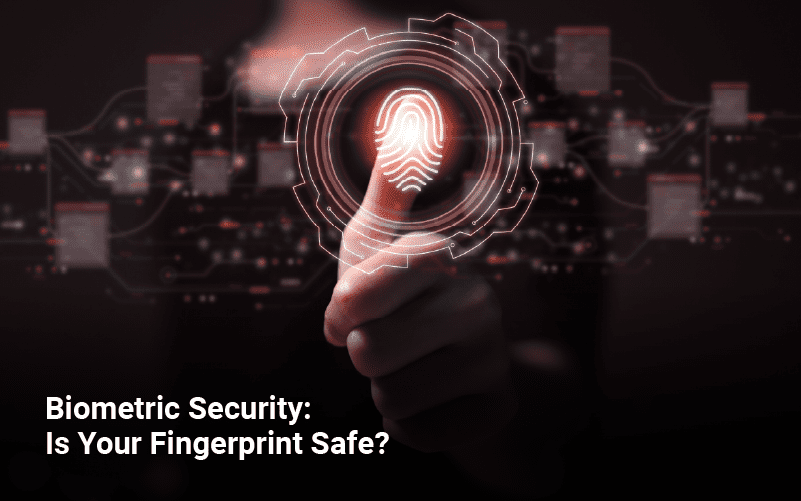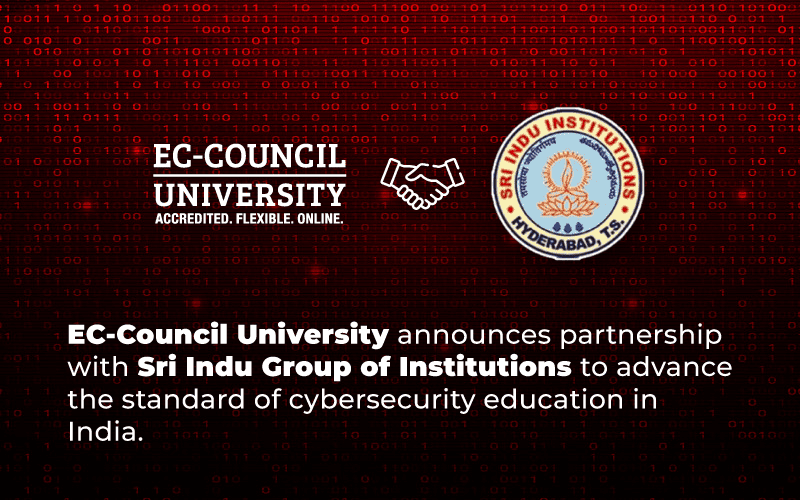What Is a Chief Information Security Officer?
A Chief Information Security Officer (CISO) is a corporate executive whose responsibilities include establishing and maintaining an enterprise’s vision, strategy, and program to protect information assets and technologies (Gartner).
The CISO role is relatively new, having only emerged in the mid-1990s (Faik, 2021). Before that, information security was often managed by Chief Information Officers (CIOs) or Chief Technology Officers (CTOs). However, as the importance of information security grew, it became clear that it warranted its own dedicated executive.
The CISO meaning and title are not always consistent across organizations. Some companies may have a Chief Information Officer – Security (CIO-Security) or a Vice President of Information Security. However, larger firms are more likely to refer to their top security executive as a CISO (IDG Security Priorities Study, 2020).
Regardless of the title, the Chief Information Security Officer (CISO) is responsible for leading and coordinating an organization’s information security efforts.
The CISO’s role is a critical one, as the CISO is responsible for protecting an organization’s information assets from both internal and external threats. The CISO is typically a senior-level executive who reports directly to the CEO or CIO (Fruhlinger, 2021).
Although the CISO meaning and title differ from organization to organization, they typically revolve around five main functions:
-
Developing and implementing a security strategy. This includes identifying an organization’s assets and vulnerabilities and implementing measures to protect them. This means working with the CIO to develop secure IT systems, with the Chief Financial Officer (CFO) to ensure that financial data is secure, and with the human resources department to ensure that employee data is secure.
-
Managing security budgets. This includes identifying, prioritizing, and allocating spending on security initiatives that minimize risk and maximize return on investment (ROI). Chief Information Security Officers must effectively communicate with various stakeholders, including the board of directors, senior executives, IT staff, and employees. They need to articulate the importance of security in plain terms and make a case for investments in security initiatives.
-
Overseeing security awareness and training programs. This includes developing and delivering training programs that educate employees on security risks and risk mitigation.
-
Responding to and investigating security incidents. This includes managing the response to security incidents, conducting investigations, and working with law enforcement as necessary. CISOs coordinate with law enforcement and other stakeholders to ensure that the organization’s data is recovered and that the perpetrators are brought to justice.
-
Maintaining compliance with security policies and regulations. CISOs are responsible for ensuring that their organizations are compliant with relevant security policies and regulations, such as the Payment Card Industry Data Security Standard (PCI DSS).
What Is the Workplace of a CISO Like?
CISOs work in corporate settings, non-profit sectors, and government agencies. Their offices are usually located in the same building as the IT department. They typically report to the Chief Information Officer (CIO) or Chief Technology Officer (CTO).
Many CISOs report working beyond their contracted hours. In fact, a recent study found that nearly 60% of CISOs work 11 hours more than they’re contracted for each week. Nearly 1 in 10 work 20-24 hours more per week. Additionally, even on their days off, many CISOs find it hard to completely switch off from work. And when their schedule was cleared, 13% of the 60% said they would catch up on pending work or research ways to improve business operations at their organization. (Tessian, 2021).
How CISOs Can Help with API Security
Application Programming Interfaces (APIs) are sets of software functions and rules that can be accessed by applications to allow them to interact (IBM, 2020). APIs are a crucial part of today’s digital economy, and CISOs play an important role in securing them.
Because of how critical APIs are to an organization’s infrastructure, they can be a major security risk if not properly secured (SpyCloud).
CISOs can help ensure that APIs are secure by working with developers to implement security controls, testing APIs for vulnerabilities, and monitoring API traffic for suspicious activity.
In addition, CISOs can develop policies and procedures for managing API security and provide guidance on best practices for secure API development.
Chief Information Security Officer Salary
The average salary of a CISO depends on many factors, including experience, education, location, and the size and type of organization they work for.
In general, CISOs can expect to earn an average salary of $230,204 per year, with the range being between $120,000 and $900,000, depending on the years of experience (Cyber Security Jobs, 2022).
Depending on which city or county you work in, your CISO salary may be higher or lower. For instance, CISOs working in New York, San Francisco, Boston, Seattle, and Washington are among the highest paid in the US, with salaries ranging between $134,000 and $240,000. In states such as Arizona, California, Florida, Georgia, and Illinois, CISOs are paid the most, with salaries ranging between $150,000 and $154,000.
How to become a Chief Information Security Officer (CISO)
To become a Chief Information Security Officer (CISO), you will need significant experience and education in the field of information security (Cyber Degrees, 2022).
A minimum of ten years is typically required (including at least five years in a managerial role), though some organizations may require more. You will also need to have a deep understanding of security technologies, processes, and best practices.
In addition to experience, most CISOs also have a bachelor’s degree in computer science or related fields, so they can more easily understand the technical aspects of information security. Many also hold advanced degrees, such as a master’s degree in business administration or a law degree.
The role of the CISO is important, so organizations are typically selective when choosing someone for the position (Samuels, 2022). In addition to experience and education, HR managers also look for individuals with the following skills:
- Leadership skills: CISOs must be able to lead and motivate teams of security professionals.
- Communication skills: CISOs must be able to effectively communicate with other senior executives and make a case for security initiatives.
- Problem-solving skills: CISOs must be able to identify and mitigate security risks. They must also be able to effectively respond to and investigate security incidents.
- Analytical skills: CISOs must be able to analyze data to identify trends and patterns. They must also be able to make sound decisions based on data.
- Project management skills: CISOs must be able to effectively manage security projects. They must also be able to prioritize and allocate resources to maximize ROI.
CISO Certificates
To become a CISO, you must have a certain amount of experience in the field and also hold certain CISO certificates (Sartore, 2022). These include, but are not limited to:
- CISSP: Certified Information Systems Security Professional
- CISM: Certified Information Security Manager
- SSCP: Systems Security Certified Practitioner
- C|CISO: Certified Chief Information Security Officer
All these CISO certificates show that you have the necessary skills and knowledge to be a Chief Information Security Officer. They also demonstrate that you are up to date with the latest cybersecurity trends and can effectively manage a security team.
Now that the CISO meaning is clear, you must be wondering about how to start your journey to become one. If you are looking for a way to kick-start your career, EC-Council University’s Master of Science in Cyber Security is exactly what you need to be successful in this role.
The program is designed for cybersecurity professionals who want to take their careers to the next level. It is an intensive training program that covers all the essential topics that a Chief Information Security Officer needs to know. EC-Council University’s Master of Science in Cyber Security is taught by industry-leading experts and covers topics and courses that provide the necessary skills in cybersecurity, organizational behavior, structure, research, and writing to become a successful CISO.
For more information about EC-Council University or the master’s degree, visit the EC-Council University Master of Science in Cyber Security program site.
References
Gartner. Gartner glossary: chief information officer (CIO). https://www.gartner.com/en/information-technology/glossary/cio-chief-information-officer
Faik, H. (2021, November 27). The evolving role of the CISO. LinkedIn. https://www.linkedin.com/pulse/evolving-role-ciso-hicham-faik/
Fruhlinger, J. (2021, April 1). How the CISO role is evolving. https://www.csoonline.com/article/3332026/what-is-a-ciso-responsibilities-and-requirements-for-this-vital-leadership-role.html
IBM. (2020, August 19). Application programming interface (API). https://www.ibm.com/cloud/learn/api
SpyCloud. The CISOs report: perspectives, challenges and plans for 2022 and beyond. https://spycloud.com/resource/2022-the-cisos-report/
Cyber Security Jobs. (2022). CISO salary – how much can you earn as a chief information security officer? https://www.cybersecurityjobs.com/ciso-salary/
CyberDegrees.org. (2022, June 27). How to become a chief information security officer. https://www.cyberdegrees.org/jobs/chief-information-security-officer-ciso/
Samuels, M. (2020, March 2). What is a CISO? Everything you need to know about the chief information security officer role. ZDNET. https://www.zdnet.com/article/what-is-a-ciso-everything-you-need-to-know-about-the-chief-information-security-officer/
Sartore, M. (2022, June 27). A Guide to cybersecurity certifications. CyberDegrees.org. https://www.cyberdegrees.org/resources/certifications/
IDG. (2020). IDG security priorities study. https://f.hubspotusercontent40.net/hubfs/1624046/2020_Security%20Priorities%20Executive%20Summary_final.pdf
Tessian. Reclaiming hours lost to cybersecurity incidents. https://www.tessian.com/research/ciso-research/








